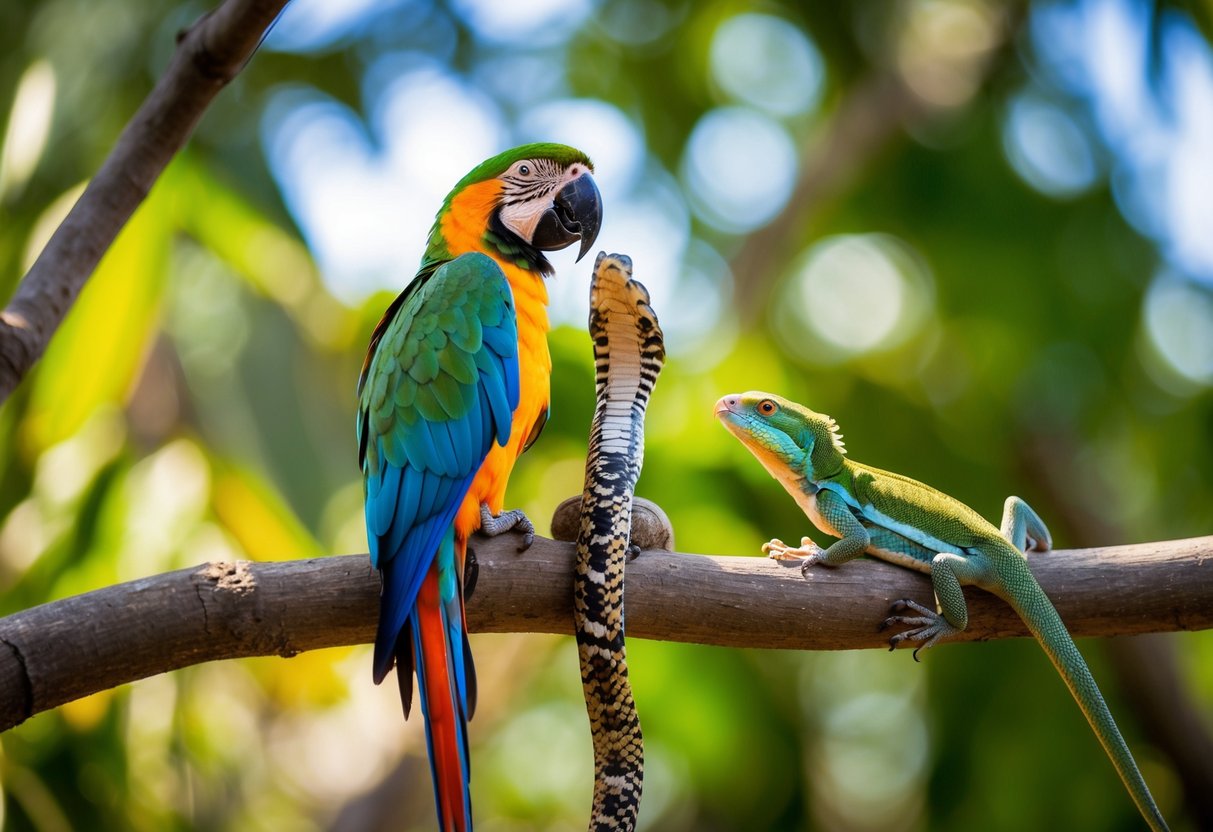
Behavioral Management and Training
Training exotic pets involves understanding their unique behaviors and applying specific techniques to address any behavioral issues. Effective training combines enrichment and socialization to promote well-being.
Understanding Exotic Pet Behavior
Recognizing the distinct behaviors of exotic pets is crucial in forming solid training practices. Birds, reptiles, and other exotic animals exhibit different behavioral cues and social structures, which require unique attention and interpretation. Behavioral issues often arise from a lack of enrichment or socialization, leading to stress or aggression.
Owners must invest time in observing normal and abnormal patterns to address these issues effectively. This understanding helps in creating an environment that supports the natural behaviors of the pet, promoting harmony and reducing the risk of behavioral problems.
Training Techniques and Behavioral Training
Training techniques for exotic pets focus on positive reinforcement and patience. Unlike traditional pets, exotic animals often require specialized approaches that suit their unique natures. Using rewards-based systems, owners can encourage desired actions while gently dissuading undesirable ones.
Socialization plays a significant role in helping exotic pets adapt and remain comfortable in their environment. Structured interaction and stimuli can enhance training outcomes and contribute to a well-adjusted pet. Creating a consistent routine helps reinforce these behaviors, ensuring long-term success in managing potential challenges.
Enrichment for Mental and Physical Health
Enrichment for exotic pets is key to ensuring their mental and physical well-being. Providing appropriate activities and social opportunities can significantly enhance the quality of life for pets like birds and reptiles.
Enrichment Activities and Toys
Enrichment activities for exotic pets should cater to their natural behaviors and instincts. Birds, for instance, might enjoy interactive toys that encourage foraging or mimic flight. Reptiles, on the other hand, could benefit from climbing structures or textured surfaces to explore and navigate.
Offering varied objects and activities maintains engagement and prevents boredom. Regularly rotating toys and introducing new challenges can stimulate mental agility. It’s important to assess the safety of toys, ensuring they are non-toxic and appropriate for the pet’s size and strength.
Incorporating enrichment into daily routines helps develop both physical and cognitive skills. Engaging pets in activities that reflect their natural environments offers them a chance to exercise and employ their natural instincts.
Importance of Socialization
Socialization plays a crucial role in the well-being of exotic pets. Birds, for instance, thrive on interaction with their caregivers and other birds, leading to enhanced emotional health. Spending time talking, playing, and even training can reduce stress and foster positive relationships.
Reptiles require different types of socialization, often needing a carefully controlled environment to interact. Owners should understand species-specific needs, as some reptiles might be solitary by nature while others may benefit from social exposure.
Providing opportunities for safe interaction helps exotic pets adapt to new environments and decreases chances of behavioral issues. Monitoring social interactions and adjusting as needed will support healthier, happier pets.



